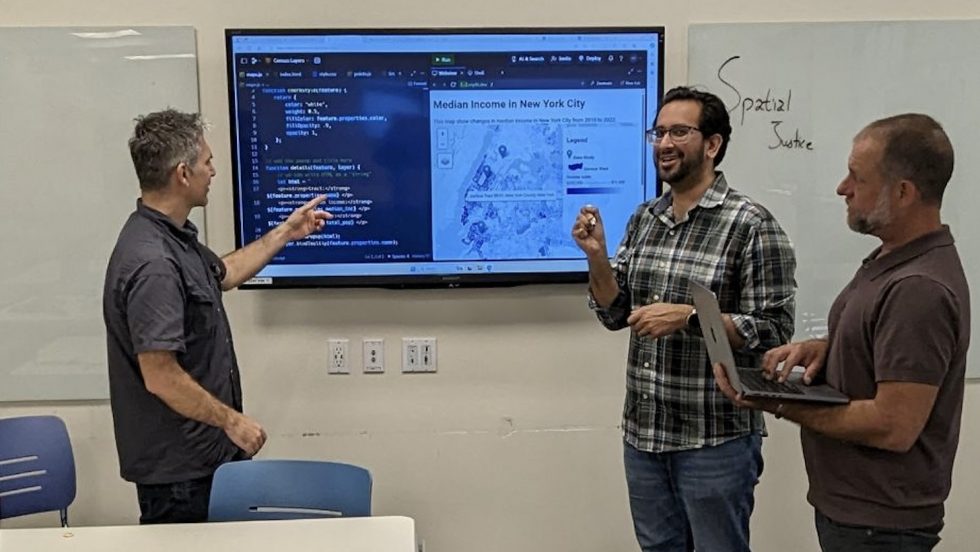
Adelphi University School of Education Assistant Professor Suraj Uttamchandani, PhD, and Associate Professor Matthew Curinga, EdD, and John Drew, associate professor of communications, have received funding from the Mozilla Foundation to redesign two courses in responsible computing.
Three Adelphi University professors have earned a grant from the Mozilla Foundation and its partners to redesign two interdisciplinary undergraduate courses that will prepare students to practice responsible computing by addressing the role of computer science in contributing to or combating inequality. Adelphi is one of only 15 institutions in the United States chosen by the Responsible Computing Challenge (RCC) program to create curricula that reimagine computing education. The RCC program is a partnership of Mozilla, the Omidyar Network, Schmidt Futures, Craig Newmark Philanthropies and the Mellon Foundation.
The $150,000 grant awarded to Adelphi’s Suraj Uttamchandani, PhD, assistant professor of learning sciences; Matthew Curinga, EdD, associate professor of education; and John Drew, associate professor of communications, funds their project, “Spatial Justice as a Bridge to Responsible Computing,” which focuses on the role of maps as digital artifacts to support spatial justice.
During the Spring 2024 semester, they redesigned Associate Professor Drew’s New Media course to help students learn user experience design through the creation of data-laden digital maps about social issues. Students investigated case studies with strong spatial justice elements, such as housing inequality, gerrymandering and school segregation on Long Island. Inspired by these cases, they formed teams to design and code their digital maps, which shed light on issues of spatial justice, while learning key computer science concepts. In the Fall 2024 semester, Dr. Uttamchandani and Dr. Curinga will co-lead a first-year seminar on these topics.
“These courses will use responsible computing as a framework to design new learning experiences around data, maps and spatial justice, and thus engage students in perspectives from geography, design, computer science, the learning sciences and educational equity,” said Dr. Uttamchandani. “One of our goals is to help a wide variety of students, including those outside of STEM majors, understand how computer science can help them tell stories about and challenge inequality. This project aims to broaden equitable participation in technology fields through innovative, research-informed, multidisciplinary and equity-forward course designs for computing education.”
Mozilla welcomed the professors to their new U.S. cohort at a dedicated RCC summit in October 2023, hosted by Harvard University’s Embedded EthiCS team in Cambridge, Massachusetts.
“AI and other computing technologies have an outsized impact on our lives, powering everything from banking to public services to law enforcement. As a result, we desperately need trustworthy AI systems —and responsible technologists who build them,” said Ziyaad Bhorat, PhD, fellow of the RCC, in an announcement of the cohort.